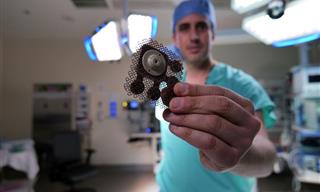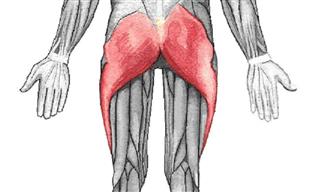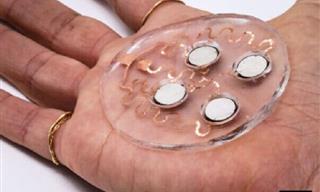As we grow older, we gain wisdom and experience, and our lives generally become more peaceful. However, along with aging, we may also experience unpleasant symptoms and an increased risk of developing chronic diseases. While heart disease, diabetes, obesity, and arthritis are commonly associated with old age, there is another condition that may surprise you - migraines. Typically starting in childhood or adolescence, migraines tend to affect more girls than boys and reach their peak around the age of 40. But what happens when you continue to suffer from migraines in your 50s or 60s? Is it the same problem, and can it be treated in the same way? To find out, let's delve into the following information and understand what is happening to your body and how you can find relief.
Migraines beyond the age of 50
It is important to consult with a doctor regarding drug treatment for migraines. For individuals over the age of 50, there are new drugs available that can help manage migraines. Migraine is a common condition in older adults, affecting 1 in 10 individuals. It is the second most common type of headache after tension headaches. Studies conducted in 2022 have shown that many people who experience migraines after the age of 50 have previously had at least one migraine attack in their lifetime. However, it is possible for individuals to develop migraines even without prior experience, although this is rare. As individuals age, the frequency of migraine attacks tends to decrease and the symptoms become less severe. However, there are still some individuals who continue to experience migraines throughout their lives, even into their 80s, albeit in a slightly different manner.
- Factors: The primary causes of migraines are stress and hormonal changes. However, this is more common in individuals under the age of 40. Those who are over 50 may experience migraines primarily due to alcohol or smoking. Women who have gone through menopause tend to have fewer migraine attacks, especially if they have a regular menstrual cycle.
- Symptoms: Migraine symptoms may be less severe as you age and can also differ from those experienced in younger years. For instance, the migraine attack may not be accompanied by sensitivity to light or sound. It's important to be aware of any aura (sensory symptoms that cause changes in vision, strange smells, or tingling in different body parts) and consult a doctor if you experience it. This is because it may not indicate a migraine, but rather a stroke.
Consulting a doctor is necessary for discussing potential medication treatments.
If you are still experiencing migraines as you get older, it is highly advisable to consult your doctor and inquire about the possibility of using different medications to address the issue. This is because the effects of the medications you have been accustomed to may change as your body ages. Dr. Gretchen Tietgen, a neurology professor at the University of Toledo in Ohio and an expert on migraines in adults, emphasizes that the dosage that was suitable for you in the past may pose problems later in life due to differences in your body's metabolic rate. It is important to note that no medication you took during your youth will be safe for you to continue taking in the same dosage as you age.
In older adults, it is important to re-evaluate the recommended dosage of migraine medications like triptans or ergotamine due to their potential to narrow blood vessels. Even if these medications have been effective in the past, they may pose risks if you have conditions such as ischemic heart disease, peripheral artery disease, high blood pressure, or a history of heart attack. Dr. Tietgen highlights that there are now alternative drugs available that can replace these medications if needed. Additionally, it is crucial to consult with your doctor as the medications you are currently taking for a chronic condition unrelated to migraines may interact with your usual migraine treatment.
The new type of drugs helping mature migraine sufferers
Today, there are highly effective medications known as anti-CGRP drugs that are widely used to treat migraines in adults. These drugs work by blocking the activity of a protein called CGRP, which is found in the brain and nervous system and plays a role in transmitting pain signals. It is worth noting that these drugs are considered safe even for individuals with blood vessel problems, according to Dr. Tietjen.
One advantage of these drugs is that they do not carry the risk of causing medication-overuse headaches, unlike some other medications. In a study conducted in 2018, researchers found that 30% of individuals aged 65 and older were overusing headache medications, leading to persistent headaches that are resistant to treatment. By opting for anti-CGRP drugs, you can avoid falling into the same trap and experiencing these debilitating headaches.
Other treatment options available for migraines for ages 50+
In addition to anti-CGRP drugs, there are other treatment options available for migraines in individuals over the age of 50.
According to Dr. Nina Riggins, an expert in treating headaches at the UC San Diego Health Academic Center, there are alternative treatments available for adults to prevent migraine attacks. These treatments include:
- Botox injections: By injecting Botox into specific muscles in the forehead and neck every 12 weeks, chronic migraine pain can be effectively treated.
- Nerve blockade: For severe migraine pain, small amounts of a numbing agent like lidocaine are injected into the base of the skull, above the eyes, or in the temple area. This helps prevent the pain from traveling through the nerves.
- Blocking SPG: The SPG (sphenopalatine ganglion) is a group of nerves connected to the trigeminal nerve, which is responsible for facial sensations and migraine pain. Anesthetic is used to block these nerves and reduce pain.
- Neuromodulation involves the use of electric or magnetic pulses to target specific nerves or areas in the brain, either to prevent migraine attacks or to lessen the severity of symptoms during an attack. There are devices available for purchase that allow individuals to undergo this treatment independently.
In addition to neuromodulation, it is highly recommended to adopt a healthy lifestyle, which includes following a proper diet, engaging in regular exercise, and eliminating harmful habits that can trigger migraines in older age, such as drinking alcohol or smoking cigarettes. Regardless of whether you have successfully managed your migraines with medication in the past, it is important to consult your doctor, as your body may require a different treatment approach now.
 Go to BabaMail
Go to BabaMail


























